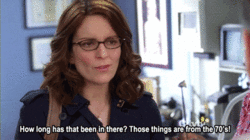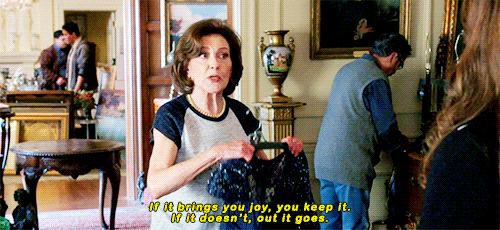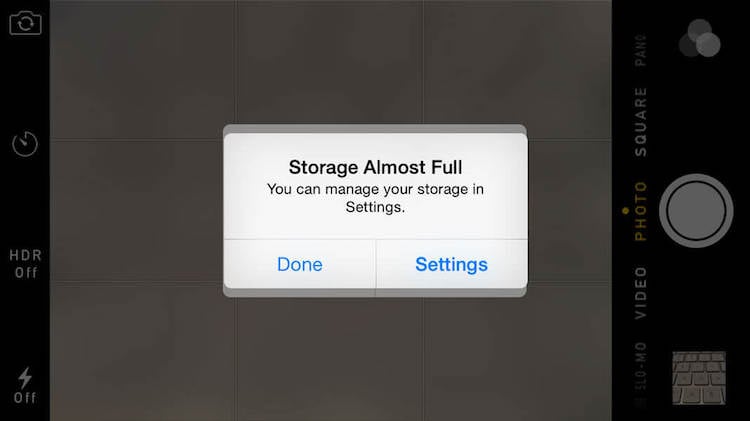One of my resolutions this year was to declutter my life at home, at work, and with technology. Putting down my smartphone, focusing on one task at a time, and finding time for meaningful engagements is what I needed to be more productive and happy.
I found that so much of the technology I used, items I kept track of, and even small knick-knacks at my desk left me feeling overwhelmed.
Over the last six months, I’ve found that clutter actually induces more stress. Studies have shown that physical clutter negatively impacts our ability to process information and, at the same time, increases cortisol, the hormone responsible for stress.
Getting your digital and physical ducks in a row is definitely easy to put off — let’s be real, is there ever really a perfect time to declutter? The great news is that decluttering can be broken down into smaller steps so that it feels more manageable. And when it’s all done, you can focus on what you do best: connecting and building relationships.

Ready to get started?
Prioritize What Brings You Joy
My decluttering journey started when I came home and saw items around me at my apartment (material items and technology) that made me feel weighed down. I was brought up in a home where material items brought sentimental value and it’s always been hard for me to throw away things, so clearing away, selling, and giving items away has been a challenge for me.
Until now.
I recently read The Life Changing Magic of Tidying Up and started to feel like I finally had concrete steps on how to organize, donate, and feel good about getting rid of things out of my life. The Konmari Method was created by Marie Kondo, who introduces why people declutter and explains the importance of keeping physical and digital spaces organized. She encourages people to only keep items that ‘spark joy’ and to confront items that you haven’t touched or actively thought about in some time. Is it better as a memory or do you really need to keep the item around?

For me, I made the act of decluttering my desk a special event because I knew that it wasn’t going to happen often. I felt a huge weight lift off my shoulders! My workspace is now a reflection of what I prioritize, and most of the time, that’s the work directly in front of me.
For example:
I realized that after graduate school, I didn’t pick up my student development books often, so I started mailing books to graduate students all over the U.S. that were still up-to-date. I sent out a tweet on the #SAgrad hashtag, and sent books to grad students who needed them. I limit the amount of books I own by participating in a book share, where I send self-help and personal development books to colleagues in higher education.
What is Digital Clutter?
The digital aspect of clutter can be easy to ignore, because our minds don’t perceive it as something tangible.
Digital decluttering can be anything from organizing your computer desktop (what files you need to sift through), to organizing your inbox, to the time to you spend online, to the amount of time you spend on social media.
When you’re not aligned with how you want to live your digital life, it becomes additional clutter.
I actually think decluttering digitally is a larger task, because it involves some lifestyle changes. Most of us are glued to our phones or laptops, always available and always on, but a lot of us don’t know how to organize communication, thoughts, and ideas.

Improving Workflows Through Digital Decluttering
If you’ve been keeping up with popular trends, minimalism is on the rise. Maybe you’ve started with your wardrobe or you’ve already organized your office space.
Have you thought about minimizing bulky workflows that you’re part of in your organization?
It may seem like a harder process to declutter. Approving budget forms in person, getting paper forms to the correct office or person… how are you supposed to keep track of everything?
Streamlining our work with technology helps us focus on what’s important, without past projects being at the forefront of our minds. For instance, how many filing cabinets do you own? Create a way to track everything digitally will help decrease physical clutter, and will lead you into your path of digitally decluttering.
Start by digital items in your office, and how you can pair down responsibly.
- Electronic cables & digital items. One of my co-workers helped me organize cables that are connected to my laptop, lamp, and other electronics. I didn’t realize how bothersome wires can be, and potentially dangerous if they’re not organized well. I had old MacBook wires and an external hard drive I needed to recycle, and found organizations like the EPA, Earth 911, and Electronics Take Back Coalition were places I could donate used or old items. Ask your campus physical plant department if you can facilitate a bulk electronics disposal week among all of the departments on campus.
- Paper forms. Converting all paper forms to online forms has been the most helpful. I no longer have to print anything off (saving tons of money on ink, paper, and fixing the office printer) as well as knowing that all of my documents are safe and secure. In student affairs, student organization advisors can utilize digital forms to approve budgetary requests, space requests, and processes that they’d normally have to facilitate in person with students. The amount of time and money saved is enormous!
- To-do lists. My favorite free to-do list and project management system has been Trello. It allows me to organize all of my thoughts, projects, and streamlines communication with my supervisors, allowing me to reduce e-mail. I’m also able to see the stages of where various projects are at in real-time.
You’ve got this!
I hope these tips have you inspired to get to work on your own spaces in life. You’ve got important projects to work on — get ready for everything to run more smoothly!
I’d love to hear from you. What are your decluttering and organizing secrets? Give me a shout at @hellopresence & @kayleyrobsham on Twitter!





